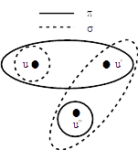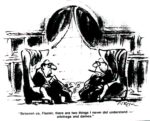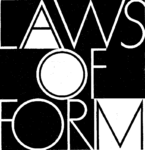4Open is a relatively new open access interdisciplinary journal (voluntary APCs) covering the 4 fields of mathematics, physics, chemistry, and biology-medicine. A special issue on Logical Entropy was sponsored and edited by Giovanni Manfredi, the Research Director of the CNRS Strasbourg. My paper is the introduction to the volume.
Book Draft: The Logic of Partitions
This book draft is an introduction to the logic of partitions on a set as well as the (quantum) logic of partitions (direct-sum decompositions or DSDs) on a vector space.
Book draft: Quantum Mechanics over Sets
Quantum mechanics overs sets (QM/ℤ₂ or QM/Sets) is a pedagogical or `toy’ model of finite-dimensional quantum mechanics (QM/ℂ) that reproduces in the simplified setting of vector spaces over ℤ₂ the essentials of projective measurements, the double-slit experiment, the indeterminacy principle, entanglement, Bell’s Theorem, the statistics of indistinguishable particles, and so forth,
The Logical Theory of Canonical Maps
The purpose of this paper is to show that the dual notions of elements & distinctions are the basic analytical concepts needed to unpack and analyze morphisms, duality, and universal constructions in the Sets, the category of sets and functions.
Negation and Implication in Partition Logic
Our purpose in this paper is to explore the notions of negation and implication in that other mathematical logic of partitions.
Probability Theory with Superposition Events
In finite probability theory, events are subsets S⊆U of the outcome set. Subsets can be represented by 1-dimensional column vectors. By extending the representation of events to two dimensional matrices, we can introduce “superposition events.”
Extending All Boolean Operations to Partitions
The lattice operations of join and meet were defined for set partitions in the nineteenth century, but no new logical operations on partitions were defined and studied during the twentieth century. Yet there is a simple and natural graph-theoretic method presented here to define any n-ary Boolean operation on partitions. An equivalent closure-theoretic method is […]
Finding the Markets in the Math
This paper shows how to find competitive market prices in the pure mathematics of classical constrained optimization problems.
New Light on the Objective Indefiniteness or Literal Interpretation of QM
This paper shows how the mathematics of QM is the math of indefiniteness and thus, literally and realistically interpreted, it describes an objectively indefinite reality at the quantum level. In particular, the mathematics of wave propagation is shown to also be the math of the evolution of indefinite states that does not change the degree of indistinctness between states. This corrects the historical wrong turn of seeing QM as “wave mechanics” rather than the mechanics of particles with indefinite/definite properties.
A Note on Spencer-Brown’s Algebra
George Spencer-Brown in his cryptic book, Laws of Form, started off reasoning about “the Distinction” and ended up with an algebra that later writers showed to be the Boolean algebra of two elements.







